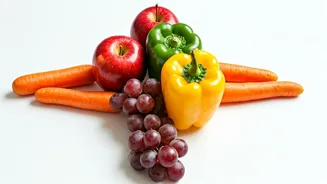Food Risks Unveiled
According to a Harvard gastroenterologist, certain foods might subtly increase cancer risk. Recognizing these hazards is the first step toward safeguarding
health. The focus is on three food categories that warrant careful consideration. The specialist's advice emphasizes the importance of mindful eating and understanding the potential impact of daily food choices. Being informed helps people make choices aligned with their health goals. This proactive approach can make a significant difference in long-term health and well-being. It is about taking charge of your health by knowing what you consume.
Processed Meats Concerns
Processed meats, often found in convenience foods and deli sections, are a primary area of concern. These meats undergo curing, smoking, or other processes to enhance flavor and preservation. This can introduce or generate compounds like nitrates and nitrites. The expert highlights the potential link between regular consumption of processed meats and an elevated risk of certain cancers. These include colorectal cancer. The recommendation is to limit or avoid processed meats whenever possible. Choose fresh, unprocessed options. This shift in dietary habits could have significant health benefits.
Red Meat Caution Advised
Red meat consumption also prompts caution. High intake of red meat, such as beef and pork, is associated with a greater risk of cancer. The risk is particularly pronounced with frequent intake. The gastroenterologist suggests moderating red meat intake. Focus on portion sizes and frequency. Consider lean protein sources. Include fish, poultry, beans, or lentils in your diet. Making smart substitutions can significantly lower your potential cancer risk. The goal is a balanced diet that supports overall well-being.
Sugary Drinks' Impact
The third area of concern is sugary drinks, including soda, sweetened juices, and energy drinks. These beverages are often high in added sugars, which can contribute to obesity and insulin resistance. These factors increase cancer risk. The expert recommends reducing or eliminating sugary drinks from your diet. Opt for water, unsweetened tea, or infused water instead. This change is not just about cancer prevention. It’s about cultivating healthier habits that promote overall health. This approach supports a healthier lifestyle.
Making Informed Choices
Understanding these food-related risks gives individuals the power to make informed decisions. Being proactive and modifying your diet can significantly affect your cancer risk. Prioritize fresh, unprocessed foods. Make sure that you limit your consumption of processed meats and red meat, and eliminate sugary drinks. By taking small, consistent steps, it is possible to enhance your well-being. Focusing on a diet rich in fruits, vegetables, and lean proteins is vital. A mindful approach to eating empowers you to protect your health.






















